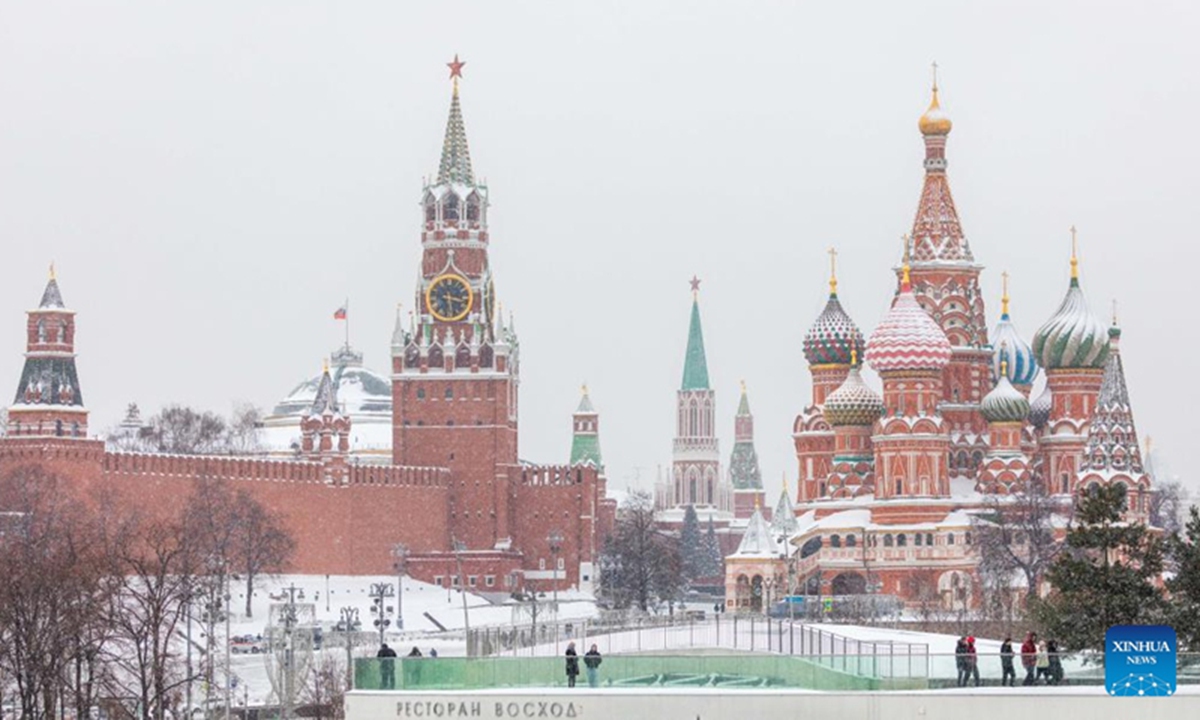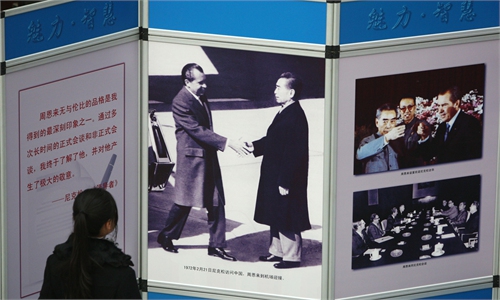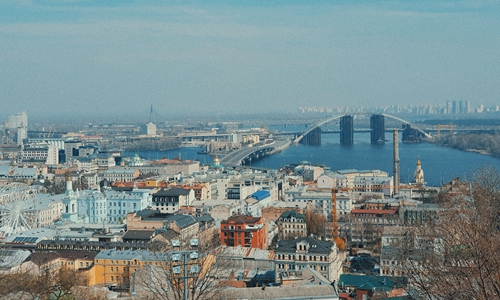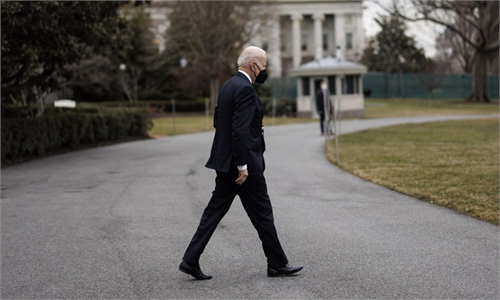
Photo taken on Jan. 26, 2022 shows the snow-covered Kremlin and Saint Basil's Cathedral in Moscow, Russia.Photo:Xinhua
Editor's Note:
The Ukraine crisis has changed since Russia decided to recognize two regions in eastern Ukraine as "independent and sovereign states." Why did Russian President Vladimir Putin make this decision? How will the tensions between Russia and Ukraine evolve? The Global Times interviewed two Russian scholars - Danil Bochkov, an expert at the Russian International Affairs Council, and Sergey Biryukov, a professor at the Siberian Institute of Management in Novosibirsk of Russia.
GT: How can we understand President Putin's decision? What kind of strategic layout does NATO have for Ukraine? If it comes true, what threat will it pose to Russia's national security?
Bochkov: President Putin's decision to recognize self-proclaimed republics of Ukraine as independent entities is motivated by Russia's concern that if the country comes more closely under the US and NATO military cooperation with deployments of any weapon systems or erecting of military facilities, Moscow's regional interests, as well as its security, would be at extreme risk. The main driving force of Putin's decision was failed attempts in previous months to make any headway on the negotiation track, namely obtaining those security guarantees which Russia was advocating for - for example that NATO would not expand eastward and never admit Ukraine. After several rounds of high-level talks, both online and offline, with the EU and US representatives that led to no practical progress, Moscow resorted to hard power politics and confrontation, which seems to be a last resort at the Kremlin's disposal in such a geopolitical stalemate.?
Biryukov: The NATO plan involves Ukraine's connection to the military infrastructure of NATO, which will be a systemic threat to Russia's security.
GT: How will the tension between Russia and Ukraine develop? Is it possible to return to the starting point of the Minsk II agreement?
Bochkov: Minsk agreements were finally scrapped, with no practical possibility of resurrection. Though Moscow criticized Ukraine for failing to deliver on its responsibilities under the Minsk papers for all the years of confrontation on Monday, it was in fact the one who placed the last nail in their coffin. Their very provisions do not allow any form of independence for the Donbas regions, on the contrary, ruling to bring them back under Kyiv's control after elections are held on Ukrainian laws.?
Biryukov: It can be assumed that the tension between Russia and Ukraine will decrease in the short term, despite the confrontational rhetoric. Further development of the situation will depend on how Ukraine and its allied Western countries will react to the new status of the LDPR ("the Lugansk People's Republic" and "the Donetsk People's Republic"), recognized by Russia. A return to Minsk II looks very unlikely in the near future.
GT: How much will Russia be affected by the new round of sanctions announced by the West? What pressure will the West continue to exert on Russia over the current tension?
Bochkov: For now, it is not clear which exact measures are to be enacted. But, obviously, the economic pressure is going to be excessive targeting of top officials, and individuals and entities involved in the process of recognizing both Donbas regions. On Monday, the Russian stock market witnessed the sharpest downfall since 2008 and it seems to be not the worst disturbance that could threaten the Russian economy in the midterm. The US promised to impose a whole set of severe economic sanctions targeting Russia's foreign trade, energy sector and international banking transactions. Though the impact will largely depend on the exact measures, one might be sure that they are going to loom large over the Russian economy in the years to come.?
Biryukov: Western sanctions against Russia will be introduced step by step and proportionally, depending on the development of the situation around the LDPR and Ukraine. There will be no total economic blockade or isolation of Russia in the current situation.



